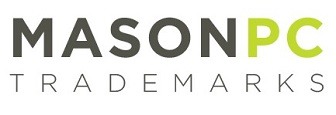I recently read a story about Dallas Mavericks superstar Luka Doncic and his legal dispute with his mother about the ownership of his trademarks. Doncic had allowed his mother to register the trademark “Luka Doncic 7”, which got in the way of his new trademark “77.” She refused to give up the registration, which lead to a very public legal dispute over who has the right to the “Luka Doncic 7” trademark.
Giving someone else authorization to register his trademark was a big mistake. Even if it was his mother, his trademarks were business assets, and they should have stayed under his own control.
In my 20+ years protecting trademarks in Canada, I’ve never had someone’s mother on the other side of the dispute. But I have seen many other disputes between former business partners, including family members, about the ownership of trademarks.
The most common dispute arises when the business relationship breaks down and one partner tries to appropriate the trademarks to the exclusion of the other.
If you have or are thinking about entering into a business venture with someone else and you want to protect yourself from this sort of free-for-all, read on.
Starting a business with a co-founder can be a more appealing prospect than going it alone. Let’s face it, entrepreneurship is a long and lonely uphill journey, and sharing the responsibilities and risks can make it a lot more fun and improve your business’ chances of survival. In fact, a recent report indicates that 80% of all billion dollar businesses launched since 2005 had more than one founder.
But not all business partnerships or relationships lead to billion dollar valuations. More often than not, these relationships fail, leaving the question “who gets to use the business name and logo going forward?”.

There can be only one owner of a trademark.
A fundamental principle of trademark law is that a trademark is an indicator of a single source of goods or services. A name or logo that points to more than one source is confusing for the public, and in effect, means there is no trademark.
So, when co-founders or partners split, each can’t carry on the same business using the same trademarks. It will destroy the public’s confidence and lead to the devaluation of the brand.
So, who should get to use the trademarks?
Ideally, the answer to this question is contained in a written agreement between the founders. Kind of like a prenup for your business created before the relationship was formed. It is, after all, much easier to come to a rational and fair agreement when all parties are treating each other with trust and respect.
If there is no specific agreement in place, things can get messy.
So messy that we’ve seen former co-founders or business partners race to get a trademark application on file to claim a name or logo for themselves to the exclusion of everyone else.
In Canada, a trademark registration is the federal government’s grant of the exclusive right to use a trademark throughout Canada. Even if you aren’t technically the rightful owner of a name or logo, you still have a procedural and financial advantage in the quest to claim ownership of a name or logo if you are the first to file a trademark application.
Hence the race.
There is, however, a simple solution to avoiding a free-for-all grab at trademark rights, even if you don’t have a written agreement between your co-founders or partners.
Your business’ name and logo should be trademark registrations owned by the business itself.
This was Luka Doncic’s biggest mistake.
One of the many benefits of a trademark registration is that it transforms an intangible claim of legal rights into a tangible asset listed on the federal register of trademarks. Trademark registrations ensure that the name and logo of the business are treated as assets of the business, and not as an asset of one of the founders or partners. This effectively forces departing founders or partners to negotiate the ownership of the trademarks along with the division of the other assets of the business (such as real estate, equipment, AR, etc.). If you’re operating a service-based business with partners, it’s possible that your name and logo are the most valuable assets your business has.
Trademark registrations serve as an effective legal tool to stop former founders or partners from starting up a competing business using the same name or logo, as to do so would constitute actionable trademark infringement.
Trademark registrations really are the ounce of prevention worth a pound of cure in disputes over the ownership of names and logos. If you and your business partners don’t have a written agreement in place that defines what happens to your trademarks should the business relationship break down, having the business register those trademarks with the federal government will keep them out of any one partner’s hands and ensure they continue to be assets of the business.
If your business is operating without any trademark registrations for your name and logo, start your trademark application for free today.


